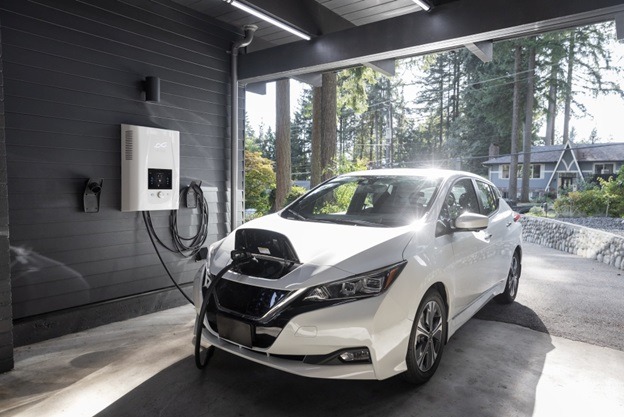The number one thing holding most people back from buying an electric car is questions they have about charging. It can be a big change going from a gas-powered vehicle to one that you have to plug in before you can drive. The novelty can be intimidating at first.
Before you buy an electric vehicle, find out everything you need to know about charging EVs.
1. How Long Does Charging Take?
The most common question potential EV buyers ask is this: how long does it take to charge an electric car?
The answer depends on the type of charger you’re using. There are three levels of EV charging.
Level 1
Level 1 charging uses 120-volt power, which is what you get from any standard household outlet in Canada. It can take quite a long time to charge an EV this way, but it can be a good solution for hybrids or when you don’t have another option.
Level 2
This is the standard for at-home EV chargers, and it can charge your EV up to 80% in a few hours. It’s ideal for overnight charging.
Level 3
Also known as DC charging, this is the kind of charging you can find at fast charging stations in public places. Under the right conditions, it can give you an 80% charge in 30 minutes, so you can be on your way in no time.
2. Do You Need to Install a Charger at Home?
Installing a Level 2 charger at home is usually recommended for EV drivers. You’ll be able to charge your vehicle overnight when you need to, and it will be ready in just a few hours. Installing a charger in your driveway or garage will give you peace of mind and make sure your car is always ready to go.
3. How Far Can You Drive on a Charge?
The distance an EV can go on a single charge will depend on the make and model of the vehicle, as well as the type of battery used. That’s important information to get when you’re shopping around for a new vehicle.
That said, depending on your vehicle and weather conditions, you can get between 250-400 miles (400-650 kilometers) on a charge.
Keep in mind that everything in an EV runs off the battery, from the radio to the air conditioning, and usage can also affect your distance.
4. How Much Does Charging an EV Cost?
The cost to charge an electric car will depend on the local price of electricity, how much of a charge your battery can store, and whether you do it at home or at a fast charging station.
At fast charging stations, costs can be much friendlier than a stop at the gas station. As an example, in British Columbia, fast charging stations charge by the minute, and prices are higher for faster charges. According to B.C. Hydro, it takes about 30 minutes for a full charge at 100 kW, and charging rates were about 27 cents a minute plus sales tax, meaning a charge costs about $8.50.
This is only an example from British Columbia, and electricity rates in your province or state will determine your charging costs.
Charging an EV doesn’t have to be complicated. Once you know how it works and what you need to do before you buy an EV, you can start driving cleaner and saving at the pump.

